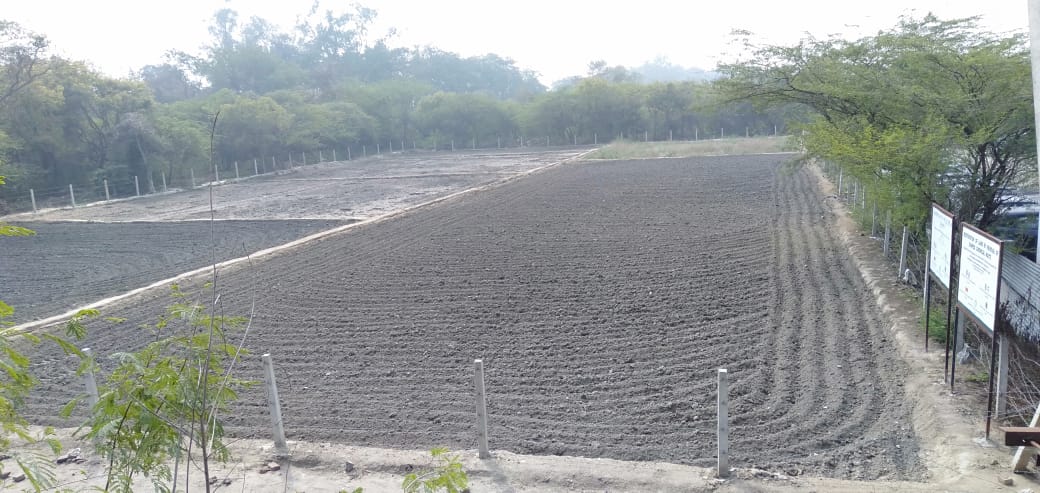Remediation and Reclamation of Hexachlorocyclohexane (HCH) Dumpsite by using Microbial Bioremediation Technology

The project aims at remediation and reclamation of Hexachlorocyclohexane (HCH) dumpsite by the use of biostimulation (BS), bioaugmentation (BA), phytoremediation (Phyto) and combinations thereof. The HCH dumpsite located in the Umari village on the outskirts of Lucknow in Banrabanki district was acquired by the State Forest Department. The objective of this project is to large-scale production of HCH-degrading microbial consortia and reclamation of HCH contaminated sites by implementation of bioremediation (bio-augmentation and bio-stimulation).
TERI is involved in the site preparation for bioremediation activities in the site and upscaling of the HCH degrading microbial consortium, which was received from project partners from Delhi University. The covered area of the site we received for bioremediation demonstration was around 3500 m2, and 1200 tonnes of HCH-contaminated soil was treated in this project.
The land was temporarily acquired from State Forest Department and subsequently prepared and divided into four experimental (BS, BA, Phyto, Phyto +BA) plots and one control plot. Standard Operating Procedures (SOP) were laid. Based on suitable growth for large-scale cultivation, Sphingobium indicum B90A, an HCH degrading bacterium that degrades all HCH isomers, including the recalcitrant -HCH isomer, was selected for bio-inoculation. Large-scale cultivation of pure B90A has been a challenging task, and after lots of optimisation, B90A liquid culture was supplied to the site for bioaugmentation. A customised nutrient mixture is also developed based on the available soil nutrient for biostimulation (BS) experimentation. We have noted the promising results and showbio degradation of HCH isomers in the biostimulation and bioaugmentation treatment.
